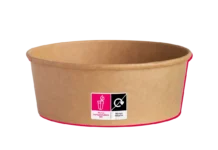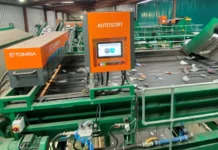
Several firms enlisted in the Circular Valley startup accelerator programme are focused on platforms that enable the exchange of putative waste.
Billions of tons of industrial waste worldwide are generated every year, much of which is landfilled or incinerated. The recycling rate in this area is in single-digits levels. Some suggest the problem is often simply a lack of connection between those with stuff to throw away, and those who might want to use it.
Several international startups appear to be working to develop platforms for different kinds of waste, seemingly in pursuit of the grail of providing a kind of “Ebay for waste”, suggests Circular Valley, which currently has three such firms enlisted in its programme.
The Circular Valley initiative is aiming to make the extended Rhine-Ruhr region a global hotspot for the circular economy, and currently supports 14 young companies from around the world. These startups are engaged in different areas (water treatment, green building, sustainable transport, renewable energies and platform solutions) but all seemingly satisfy the eligibility criteria of having a “giga-impact,” with the potential to avoid emissions of the order of billions of tons.
The platforms address a widespread gripe from industrial groups: that their production practices often give rise to material streams they can no longer use, but that could be of use to others. At the same time, companies repeatedly mention their ability to turn residual materials back into valuable materials. The following three startups are working on this crucial link:
Cyrkl: The founders from Austria and the Czech Republic have launched “Europe’s largest online waste platform” – with more than 18.000 registered companies in 11 countries. Cyrkl offers three services: a free-of-charge marketplace that customers can use. For more complex cases, the startup offers its customers a fee-based consulting service, to support them throughout the process. The third field of activity deals with strategic and structural solutions. Here, waste is analyzed and suggestions are made for the most suitable ways of dealing with it.
Mika Cycle: The French startup is described as an expert in plastic recycling. The firm began by researching the pain points and weaknesses in the procurement process and then developed their global marketplace for high-quality recycled plastic. Trading on its marketplace should be as easy as possible for both sides, according to the firm’s ethos. Quality and trust are paramount for Mika Cycle to enable the progress they hope to make. Transparent supply chains are an important building block in this. The goal: Where plastic cannot be avoided, as much of it as possible should remain in the cycle. To this end, the company wants to standardize recycling processes and make them more productive.
Clickwaste from Heidelberg already uses its slogan to clarify what change is associated with the platform: “Turning waste to value”. This means that waste materials that companies previously had to pay to dispose of suddenly become a new revenue stream. Clickwaste offers its services for a wide range of materials – in the same way that individual consumers are familiar with from online marketplaces.







